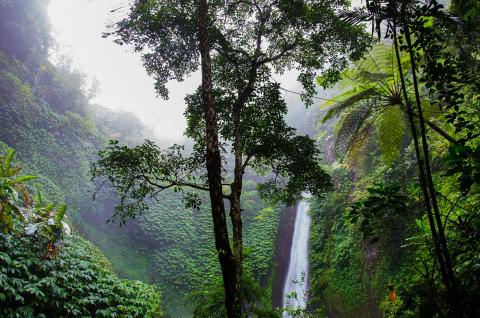
Tropical rainforests play a critical role in regulating the global climate system -- they represent the Earth's largest terrestrial CO2 sink. Because of its broad geographical expanse and year-long productivity, the Amazon is key to the global carbon and hydrological cycles. Climate change could threaten the fate of rainforests, but there is great uncertainty about the future ability of rainforests to store carbon. While severe droughts have occurred in recent years in the Amazon watershed, causing widespread tree mortality and affecting the forests' ability to store carbon, the drivers of tropical rainforests' sensitivity to drought are poorly understood.
A new study led by Pierre Gentine, associate professor of earth and environmental engineering at Columbia Engineering, shows that photosynthesis in tall Amazonian forests -- forests above 30m -- is three times less sensitive to precipitation variability than in shorter forests of less than 20m. Taller Amazonian forests were also found to be older, have more biomass and deeper rooting systems that enable them to access deeper soil moisture, which makes them more resilient to drought.
The paper was published online May 28 on Nature Geoscience.

